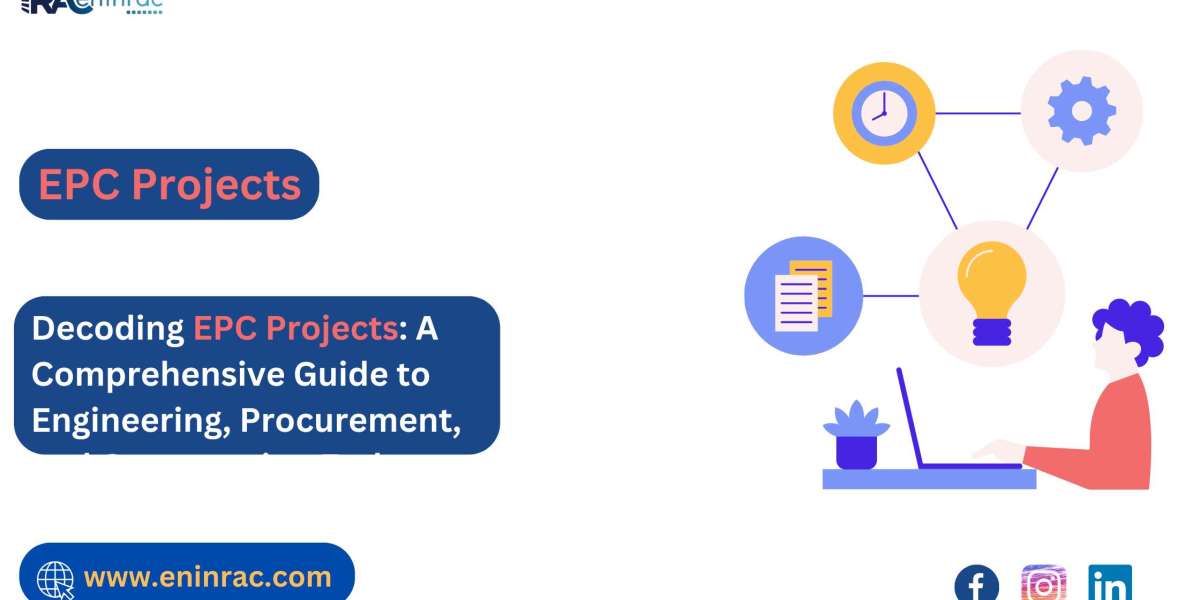In the realm of large-scale infrastructure development, Engineering, Procurement, and Construction (EPC) projects stand as pillars of progress. These multifaceted endeavors encompass the design, procurement, and construction phases of complex infrastructure ventures, ranging from power plants and refineries to transportation networks and industrial facilities. In this comprehensive guide, we delve into the intricacies of EPC projects, exploring their significance, key components, challenges, and best practices.
Understanding EPC Projects
Definition and Scope:
EPC projects involve a turnkey approach to infrastructure development, where a single entity – typically an EPC contractor – takes responsibility for the entire project lifecycle, from conception to completion. This includes engineering design, procurement of materials and equipment, construction, commissioning, and handover to the client. EPC contracts provide clients with a single point of contact and accountability, streamlining project management and reducing coordination efforts.
Key Components:
- Engineering: The engineering phase involves detailed design, planning, and feasibility studies to define project specifications, requirements, and technical parameters. This phase lays the foundation for subsequent procurement and construction activities, ensuring alignment with client expectations and regulatory standards.
- Procurement: Procurement encompasses the sourcing, purchasing, and logistics management of materials, equipment, and services required for project execution. EPC contractors leverage their network of suppliers, subcontractors, and vendors to secure quality resources at competitive prices, optimizing cost and schedule efficiency while adhering to project specifications.
- Construction: The construction phase involves the physical realization of the project, including site preparation, structural erection, installation of equipment, and integration of systems. EPC contractors coordinate with various stakeholders, subcontractors, and workforce to execute construction activities safely, efficiently, and within budgetary constraints.
- Commissioning: Commissioning entails testing, validation, and fine-tuning of systems and components to ensure functionality, reliability, and compliance with performance standards. This phase involves rigorous quality assurance and quality control measures to identify and rectify defects, deviations, and discrepancies before project handover.
- Handover and Operation: Upon successful completion of commissioning activities, the project is handed over to the client for operational use. EPC contractors may provide training, documentation, and ongoing support to facilitate smooth transition and optimize asset performance during the operational phase.
Significance of EPC Projects
Efficiency and Accountability:
EPC projects offer clients a streamlined approach to infrastructure development, minimizing coordination efforts and mitigating risks associated with multi-party contracts. By consolidating responsibility under a single entity, EPC contracts enhance accountability, facilitate efficient decision-making, and expedite project delivery.
Quality and Reliability:
EPC contractors bring specialized expertise, experience, and resources to ensure the quality, reliability, and safety of infrastructure projects. From engineering design to construction execution, stringent quality control measures and industry best practices are implemented to meet or exceed client expectations and regulatory requirements.
Cost and Schedule Certainty:
EPC contracts provide clients with cost and schedule certainty by establishing clear milestones, deliverables, and contractual obligations. By leveraging economies of scale, value engineering, and risk management strategies, EPC contractors optimize project cost-efficiency while adhering to agreed-upon timelines, minimizing the likelihood of cost overruns and delays.
Challenges in EPC Projects
Complexity and Risk:
EPC projects are inherently complex, involving numerous stakeholders, technical challenges, and regulatory considerations. Managing project risks such as cost overruns, schedule delays, and unforeseen contingencies requires robust planning, effective communication, and proactive risk mitigation strategies.
Supply Chain Management:
Effective procurement and supply chain management are critical success factors in EPC projects, given the reliance on timely delivery of materials, equipment, and services. Supply chain disruptions, logistical challenges, and vendor performance issues can impact project timelines and costs, necessitating close collaboration and contingency planning.
Regulatory Compliance:
EPC projects must comply with a myriad of regulatory requirements, environmental standards, and safety regulations imposed by local authorities and governing bodies. Ensuring regulatory compliance throughout the project lifecycle requires diligent oversight, documentation, and adherence to applicable laws and industry standards.
Best Practices in EPC Projects
Comprehensive Risk Assessment:
Thorough risk assessment and mitigation planning are essential at every stage of an EPC project. Identifying potential risks, evaluating their impact, and developing contingency plans enable proactive risk management, minimizing disruptions and safeguarding project outcomes.
Stakeholder Collaboration:
Effective communication and collaboration among project stakeholders are paramount to project success. Establishing clear lines of communication, fostering trust, and addressing stakeholder concerns proactively enhance project transparency, alignment, and stakeholder satisfaction.
Technology Adoption:
Embracing innovative technologies such as Building Information Modeling (BIM), digital twin simulations, and project management software enhances efficiency, collaboration, and decision-making in EPC projects. Leveraging digital tools and analytics enables real-time monitoring, data-driven insights, and performance optimization throughout the project lifecycle.
Continuous Improvement:
EPC projects benefit from a culture of continuous improvement, where lessons learned from past projects are incorporated into future endeavors. Conducting post-project reviews, capturing best practices, and fostering a culture of innovation and learning drive operational excellence and enhance project outcomes over time.
Conclusion: Unlocking Potential through EPC Projects
EPC projects play a pivotal role in shaping the infrastructure landscape, driving economic growth, and improving quality of life for communities around the world. By adopting a holistic approach to project management, embracing innovation, and fostering collaboration among stakeholders, EPC projects can overcome challenges, deliver value, and leave a lasting legacy of sustainable development and progress. As we navigate the complexities of the 21st century, EPC projects will continue to serve as catalysts for transformation, innovation, and positive change in the global infrastructure sector.
More market research, advisory consulting services to discover
At Eninrac, we offer a wide range of, advisory consulting solutions, from We put ‘search’ in research to help expand your business with ease. Discover all the possibilities now.



